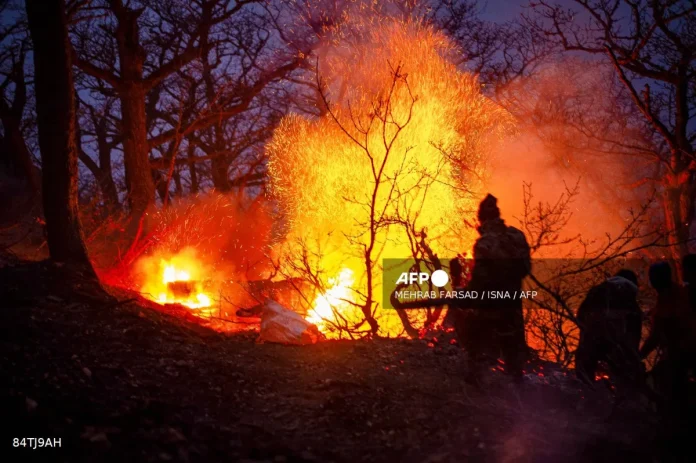Iran requests urgent foreign assistance from countries like Turkey and potentially Russia to fight a massive, reignited fire in the ancient Hyrcanian forests
TEHRAN: Iran has requested foreign assistance in extinguishing a large fire that has ravaged UNESCO World Heritage-listed forests in the north of the country for several days, local media reported on Saturday.
The Hyrcanian forests stretch for about 1,000 kilometres along the Iranian coast of the Caspian Sea and into neighbouring Azerbaijan.
UNESCO recognised the forests as a World Heritage Site in 2019, deeming them unique for both their age between 25 and 50 million years old — and their varied biodiversity, as home to more than 3,200 species of plants.
A fire that broke out in the area in early November and was initially quelled reignited on November 15, Iran’s official IRNA news agency reported.
Mohammad Jafar Ghaempanah, deputy to Iranian President Massoud Pezeshkian, wrote Friday on X that “faced with the impossibility of containing the fire”, Iran had “requested urgent assistance from friendly countries”.
“Two specialised water bomber planes, a helicopter, and eight people will be dispatched from Turkey,” Shina Ansari, head of the Iranian Environmental Protection Organisation, said on Saturday.
“If necessary, we will also seek assistance from Russia,” she added on state television.
According to the Tasnim news agency, the fire was allegedly started by hunters in the rocky area of Elit in the province of Mazandaran, in northern Iran.
The country is currently facing one of its most severe droughts since records began six decades ago.
The director general of crisis management for Mazandaran province, Hossein Ali Mohammadi, described the operation to extinguish the fire as “one of the most complex in recent years”.
UNESCO says on its website the Hyrcanian forests contain “a large number of rare and endemic tree species” and are home to “many relic and endangered plant species”.
“Iranians are losing a natural heritage that is older than Persian civilization,” Kaveh Madani, a UN scientist and former Iranian environmental official, wrote on X. – AFP







